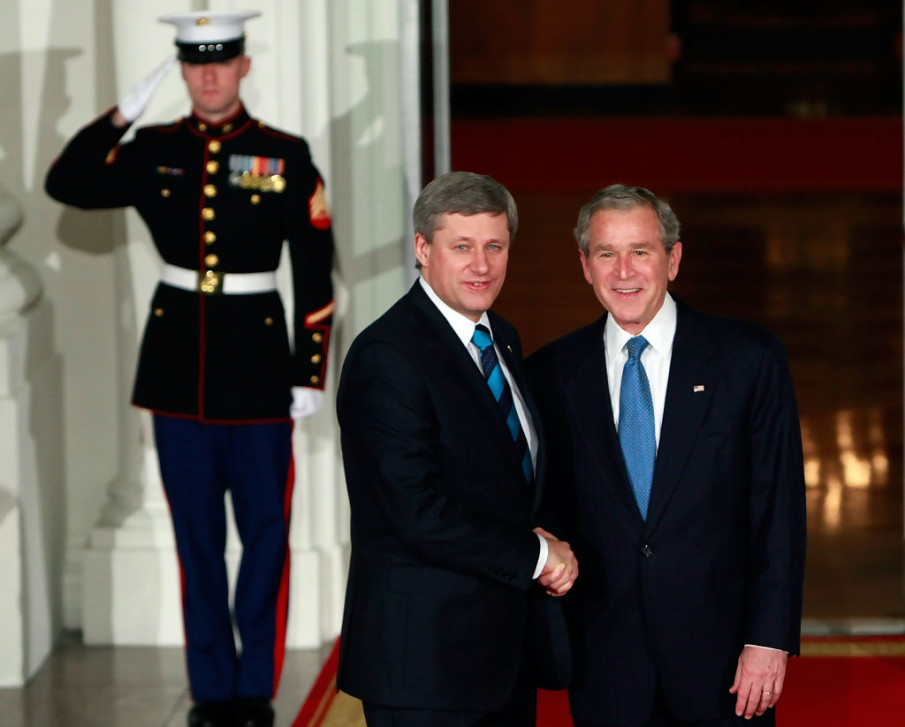Both the United States and Canada are on the brink of an election, during which defence issues will be central. With the escalating war against ISIS, rising tensions with Russia, and Arctic sovereignty in the balance, war and electoralism have become exceedingly close, marking the return of a temptation politicians can’t quite resist, regardless of consequences.
Let’s explore what kind of cautionary tale Canadian politics can reveal.
Controversial bill, tired political tactics
Let’s face it; war and electoralism are nothing new. Last June, the Canadian Parliament passed Bill C-51, otherwise known by its official short name, the Anti-Terrorism Act. It’s basically this country’s version of the Patriot Act passed more than a decade later, and a repeat of the latter’s mistakes and shortcomings. The justification behind the bill mirrors that of the Patriot Act; it’s in response to a terrorist attack on the country’s soil—in Canada’s case, the Saint-Jean-sur-Richelieu and Ottawa attacks that killed two Canadian soldiers. Basically, it increases the government security agencies’ powers to investigate and acquire information from other government agencies and departments, expands the no-fly list, and prohibits the broadcasting of “terrorist propaganda.”
It would be an understatement to say that the bill is already controversial, with criticism ranging from useless legal redundancy to the dangerously vague scope of the legislation: The bill doesn’t specify a precise version of what constitutes “terrorism,” but government officials routinely mention that disruption of the Canadian economy fits the description. Several critics already fear that environmental activists and First Nations protest groups against shale gas and tar sands exploitation might become a target of the legislation.
Government officials have already responded with the same old tired political tactics infamously immortalized in former President George W. Bush’s “You’re either with us or with the terrorists” rhetoric. Public Safety Minister Steven Blaney has already accused critics, including opposition-elected members of parliament, of siding with terrorists.
Attacks on “Canadian economy”: a comically ironic twist
C-51 has been worded so vaguely and implemented with such a wide scope that it’s hard not to see the bill as a political tool. It defines security not only as a safeguard of public safety but also includes any “attack on the economic and financial stability of Canada.”
This is where things can quickly get out of hand and threaten the right to free speech, free association, and political dissent.
For the past few years, Canada’s economic development has relied heavily on exploiting Alberta’s tar sands with a promise of the “True North” becoming the world’s biggest oil producer, but not without consequences to the environment—a major concern to activists and First Nations fearing long-term, irreversible damage to the Athabasca River—or violation of aboriginal territorial sovereignty.
Under C-51’s broad definitions, opposing tar sands could conceivably be perceived as terrorism.
As previously mentioned, the bill prohibits broadcasting propaganda and yet, in a recent attack ad against the Liberal Party of Canada’s leader, Justin Trudeau, the conservative government used clips from ISIS propaganda videos to highlight Trudeau’s (actual) weakness on fighting terrorism.
All this makes C-51 look like a swiftly put-together bill fabricated right before an election to make the Conservative Party of Canada appear as if they’re the only ones committed to fighting Canada’s enemies. Yet, legislation included in previous bills, including the Canadian Criminal Code, already provided legal means to fight terrorism on domestic soil, and agencies like the Canadian Security Intelligence Service and Royal Canadian Mounted Police have already been thwarting attacks for more than a decade.
Already have an account? Sign In
Two ways to continue to read this article.
Subscribe
$1.99
every 4 weeks
- Unlimited access to all articles
- Support independent journalism
- Ad-free reading experience
Subscribe Now
Recurring Monthly. Cancel Anytime.


COMMENTS